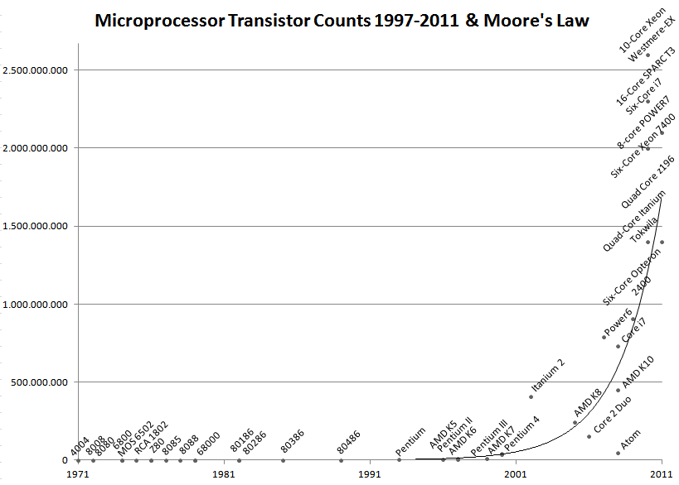Artificial intelligence is coming for somebody’s job—we just don’t know whose. That’s why a group of researchers have called on the United States government to create an “AI Index,” similar to the Consumer Price Index, to track the development of AI technologies.
The thinking goes that artificial intelligence and automation will have a significant impact on available jobs, both by destroying current ones and creating new opportunities. However, the government and companies don’t have access to adequate centralized data that would make coping with changes from AI and automation easier.
“We’re flying blind into this dramatic set of economic changes,” Erik Brynjolfsson, one of the researchers behind the study, told The New York Times.
What Matters Most to Marketers
In a companion article to the AI Index published in Nature, Brynjolfsson points out that job-seeking websites, universities, government bodies and tech companies have lots of data at their disposal on AI and automation’s effects on employment and careers.
“These sorts of information, if connected and made accessible in the right way, could give us a radically better picture of the current state of employment,” he writes. “But hardly any such data are being shared now between organizations, and so we fail to capture their societal value.”
The researchers propose a number of actions to get more and better data on the impact of AI and automation, including increased data collection and categorization, as well as better data sharing between government agencies.
Related Read: 11 Expert Resources for Marketers Interested in Artificial Intelligence
What matters most to marketers is that an AI Index is being recommended at all. Marketing is one of the more promising areas in which AI can create value today, delivering greater productivity, personalization and performance. Some marketing tasks may be completely automated by AI; others will be augmented. An index that helps industries cope with AI’s impact is highly relevant to marketers currently facing AI disruption and innovation.
While the index is not yet reality, its story so far has valuable lessons for marketing professionals who want to learn more about AI and the impact it’s having on our industry.
Why We’re Not Ready for AI
Marketers are largely unprepared for AI. Tech-savvy professionals in plenty of industries have trouble conceptualizing the potential rapid development of artificial intelligence. Brynjolfsson, in the Nature article, summarizes this idea well:
“...Lacking are metrics to track progress in the technologies and capabilities of AI. Moore's law (that microprocessor performance doubles every two years or so) captures advances in the underlying semiconductors, but it does not cover rapid improvements in areas such as computer vision, speech and problem solving.”
Moore’s law is a standard measure of technological progress based on the number of transistors that can fit on a microprocessor, and it’s crazy. (See image below.) Notice the slow uptick in growth, followed by an explosive hockey stick rise in a relatively short time.

Advancements in one field of AI could accelerate developments in another. Thanks to machine learning, small gains in one area of AI might cause runaway growth and automate industries overnight. Or AI could progress linearly, getting incrementally better each year and slowly taking over more and more tasks reserved for humans.
Either way, machines are getting smarter. A lot smarter. We just don’t have an accurate barometer of how much smarter.
Why Marketers Are In the Dark About AI
The private sector realizes AI’s potential. Many top players, notably Amazon, are baking artificial intelligence, machine learning, deep learning and other AI technologies into every aspect of their operations. Says Brynjolfsson in Nature:
“Happily, we are in the middle of a digital data explosion. As companies have come to understand the power of machine learning, they have begun to capture new kinds of data to optimize their internal processes and interactions with customers and suppliers. Most large companies have adopted software and data infrastructures to standardize and, in many cases, to automate tasks — from managing inventories and orders to handling staff holidays. Internet companies such as Amazon and Netflix routinely capture massive amounts of data to learn which products to show customers next, increasing sales and satisfaction.”
Even the former chief economist at the federal Census Bureau is quoted by The New York Times as saying, “Our surveys are not really designed to track technology or its impact. The best shot at that is the private sector data.”
This reality leaves marketers, entrepreneurs and executives who are not working for a company heavily involved in AI in the dark on the technology’s potential.
This ignorance may be dangerous.
Business strategies and growth opportunities that don’t account for the full potential of AI are flying blind. Millions are left on the table if decision-makers don’t understand how AI solutions might make their marketing and operations smarter, more effective and less costly. And companies previously comfortable in their market dominance could find the tables turned faster than they thought possible by machine learning equipped challengers.
In The Master Algorithm, a study of machine learning, researcher Pedro Domingos puts it memorably:
“In the same way that a bank without databases can’t compete with a bank that has them, a company without machine learning can’t keep up with one that uses it. While the first company’s experts write a thousand rules to predict what its customers want, the second company’s algorithms learn billions of rules, a whole set of them for each individual customer. It’s about as fair as spears against machine guns. Machine learning is a cool new technology, but that’s not why businesses embrace it. They embrace it because they have no choice.”
If the AI Index becomes reality, marketers, executives, entrepreneurs and the public at large will have a much clearer picture of how to cope with such a dramatic change.
Mike Kaput
As Chief Content Officer, Mike Kaput uses content marketing, marketing strategy, and marketing technology to grow and scale traffic, leads, and revenue for Marketing AI Institute. Mike is the co-author of Marketing Artificial Intelligence: AI, Marketing and the Future of Business (Matt Holt Books, 2022). See Mike's full bio.


